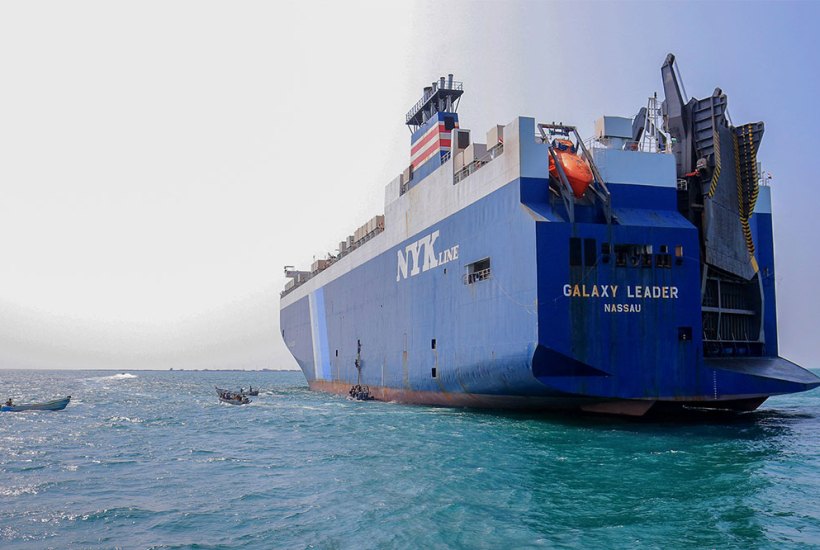The US and Britain have joined forces to strike Houthi rebels who have been attacking commercial shipping in the Red Sea. But where is the rest of Europe when it comes to defending its own interests? The Netherlands has provided some logistic support – along with Australia, Bahrain and Canada – but European countries have otherwise opted out of the operation, just as they have so many times before.
Already a subscriber? Log in
Subscribe for just $2 a week
Try a month of The Spectator Australia absolutely free and without commitment. Not only that but – if you choose to continue – you’ll pay just $2 a week for your first year.
- Unlimited access to spectator.com.au and app
- The weekly edition on the Spectator Australia app
- Spectator podcasts and newsletters
- Full access to spectator.co.uk
Or
Unlock this article
You might disagree with half of it, but you’ll enjoy reading all of it. Try your first month for free, then just $2 a week for the remainder of your first year.








Comments
Don't miss out
Join the conversation with other Spectator Australia readers. Subscribe to leave a comment.
SUBSCRIBEAlready a subscriber? Log in